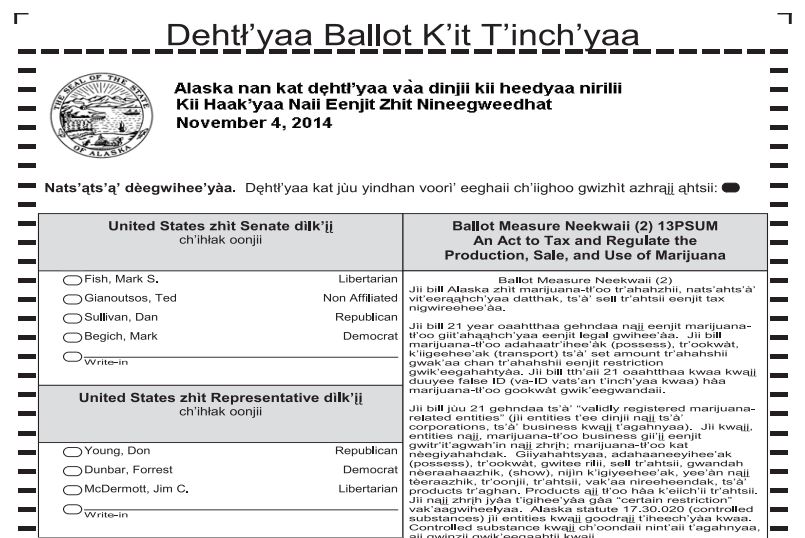
In a historic settlement, the state has agreed to provide increased language assistance for voters whose primary language is Yup’ik or Gwich’in.
The federal lawsuit was filed in 2013 by two Alaska Native voters and several tribal governments. The plaintiffs claimed the state doesn’t do enough to serve voters who speak Alaska Native languages.
Natalie Landreth with the Native American Rights Fund is an attorney for the plaintiffs.
“The choices that were made in the settlement open the door for Alaska Native access to the polls in a way that we have not seen before,” Landreth said.
The centerpiece of the settlement is translating the state’s official election pamphlet into Gwich’in and up to six different dialects of Yup’ik. The pamphlet contains pre-election information on how to vote, biographical information on candidates and explanations of ballot measures.
The state agrees to provide outreach workers with standardized training and translations, which Landreth calls significant. The settlement also creates more partnerships with tribal governments, establishes Gwich’in and Yup’ik dialect glossaries of election terms and calls for a full-time state elections employee in charge of language assistance activities.
Originally called Toyukak v. Treadwell, the case had been in negotiations for about nine months. Lt. Gov. Byron Mallott inherited the case.
“I am pleased to put the issues that were the basis of complaint behind us (and reach) an agreement going forward that I think strengthens Alaska’s election procedures and processes,” Mallott said.
Mallott said it will be difficult to implement, but is confident incoming Division of Elections Director Josephine Bahnke can handle it. In July, Mallott requested former director Gail Fenumiai to resign. He said that decision was not a reflection on her past work.
“The obligations on the division and its director going forward to implement the settlement are going to be hugely significant and it was on that basis that we felt new leadership would be required,” Mallott said.
Bahnke, the outgoing city manager of Nome, is scheduled to begin in October.
The settlement between the state and the plaintiffs was filed Tuesday in U.S. District Court. The state is expecting a final judgement on it in the next few weeks.
